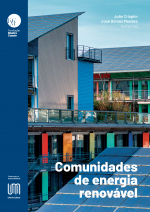Renewable Energy Communities
Keywords:
Energy Community, EnergySynopsis
In the evolution of Humanity, communities emerge as a strategy for optimizing individuals' resources. The sharing of these resources ensures greater physical security (from predators) and security of supply (specialization in hunting and, later, agriculture). As an additional advantage, we have evolved in general knowledge and in our ability to organize as a group, far surpassing the dreams of the first groups that joined.
Energy communities offer derivations of the initial advantages: physical security, opting for smaller power stations and clean and safe energy, and security of supply, not only because a more local organization allows the substitution of at least part of the energy sourced from less than recommendable countries or actors, but also represent increased capacity to deal with network disruptions caused by the elements, such as storms or fires, whose frequency and intensity are expected to increase. Additional advantages are also now foreseen, such as the democratization and accessibility of energy or the boosting of investments in renewable energy, crucial for the decarbonisation of society.
This is a concept tied to technological development, both on the energy and on the communication/information fronts, only now achieved. However, given the existence of an organized energy system prior to these possibilities, it has had a challenging evolution. Having been one of the first countries to legislate the concept, three years later we still cannot be satisfied with the low penetration of the concept in our society.
In order to realize the potential of energy communities, ten specialists were invited to, in each of the different aspects of this new area of knowledge, enlighten us on the advantages and limitations of this reality in its application in Portugal.
Chapters
-
Introdução
-
1. As comunidades de energia e o empoderamento dos cidadãos
-
2. A dimensão europeia das comunidades de energia
-
3. A dimensão estado das comunidades de energia renovável
-
4. O envolvimento dos cidadãos para a redução de emissões
-
5. Coordenação com o sistema energético
-
6. O papel das CER no âmbito do sistema elétrico: digitalização/ plataforma/enabler
-
7. Mercados locais de energia
-
8. Economia de recursos e comunidades de energia
-
9. Ordenamento do território e impacte na biodiversidade
-
10. Asprela + Sustentável: um “living lab” pela neutralidade carbónica
-
Conclusão
Downloads








